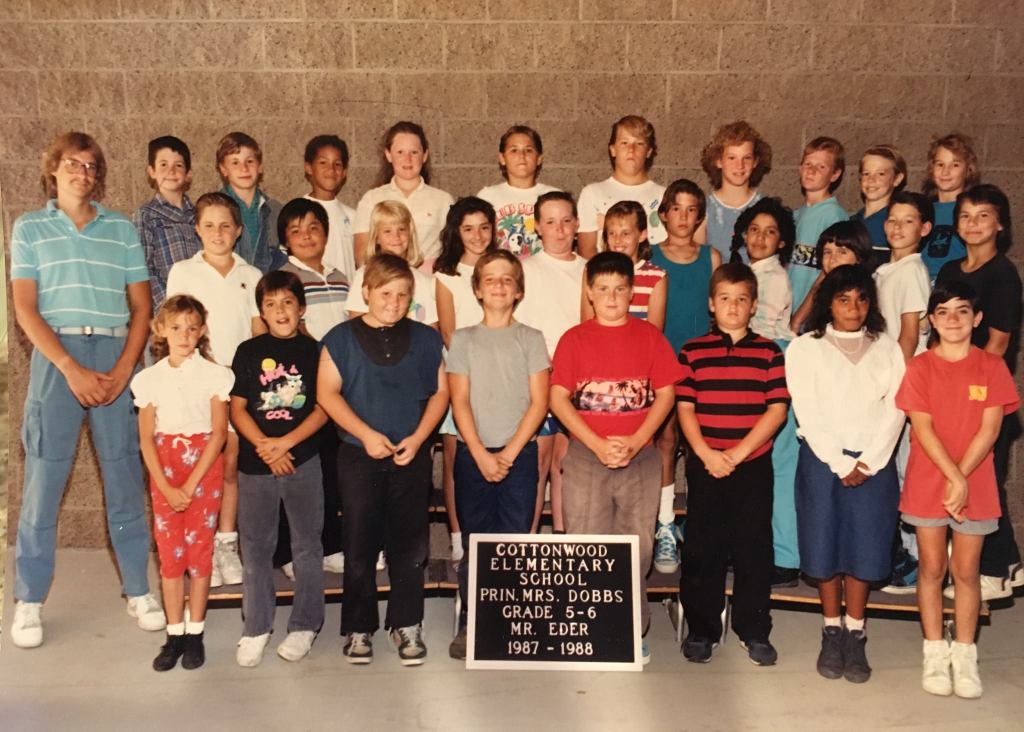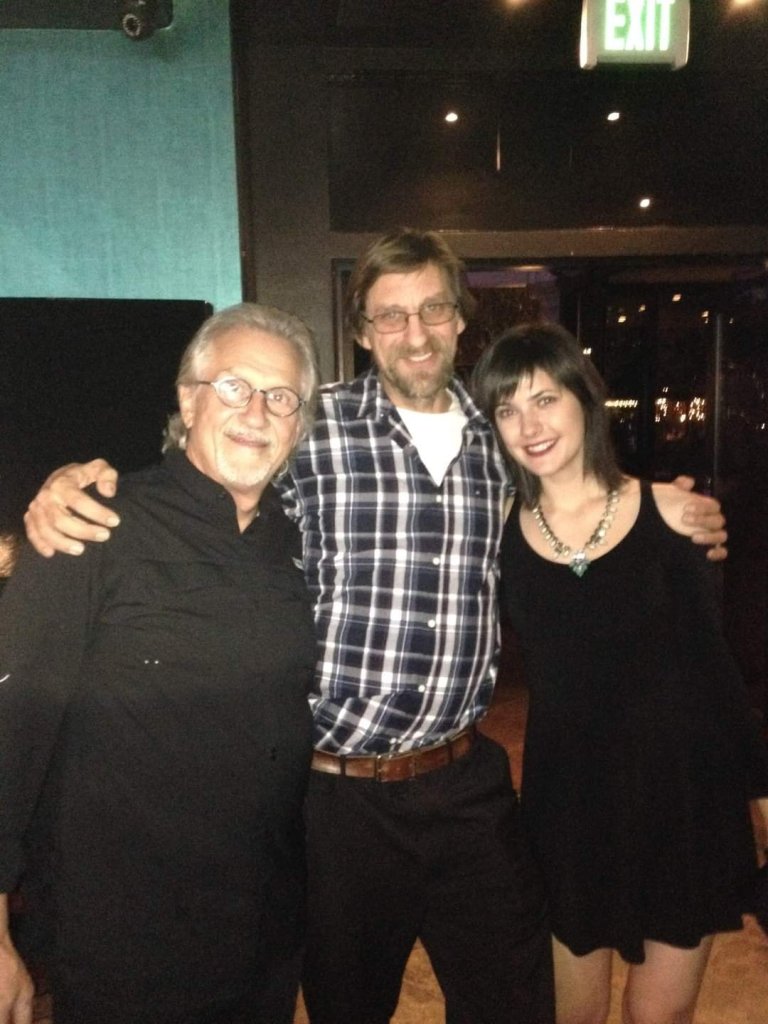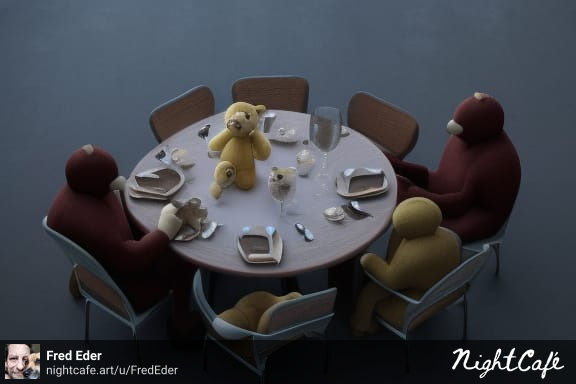I’ve always wanted to be a writer. It turns out most writers and other artists can’t pay rent or buy groceries, and I wanted to do that even more than writing. I became a teacher because it would provide an income while allowing me to write and to be creative in other ways. There are few things that require one to be as creative as finding a way to get 10-year-olds to pay attention. It was also a way to make some difference in the world.

Seven years ago, I quit teaching, and I decided to try to become a better writer. I wrote a screenplay after taking Aaron Sorkin’s Masterclass. The script wasn’t very good, but it helped me hone some of my skills.
Four years ago, my nephew’s mother suggested I start a blog because my writing was good enough that she thought it should be shared beyond my Facebook page. I didn’t know what a blog was, but some friends helped me figure it out. That went well.
When I tried to monetize it, a musician friend of mine said I had to stop doing that because I had nothing to offer, and I would be taking donors away from real artists. My first effort at a Patreon page lasted roughly 72 hours.
I kept writing.
My WordPress blog became popular, at least from my point of view. As of today, it’s been read more than 7,000 times. It was good enough that it got the attention of some podcasters who asked me to be on their show. The moment they heard my voice they told me I needed to do a podcast. I didn’t really know what that was, but they told me how to get started.
Theirs was conversation and interviews. I thought that was what mine was supposed to be. I found a partner, and I tried that. I didn’t like it at all. I wanted to be a writer. I stopped doing conversation, and I made it almost exclusively my writing. My first Patreon Supporter, for $1.00 a month, joined my site almost immediately when I became a solo act. (And she’s still there today and gets a special mention in the Gratitudes every week.) I was ecstatic. For the first time in my life, I was getting paid as a writer. The dream was possible.
200 episodes later, I’ve grown to the point that I get to put right around $400 a month into the bank. No, that’s not much money. No one has been able to live on that in my lifetime. It is, however, enough to make a significant difference in my life.
One of the things it allows me to do is invest a little in myself. If you add in all the support I get from other people, it becomes possible for me to pay a Writing Coach, who has forgotten more about writing than I will ever know, to help me improve. It’s a significant portion of the money I get from Patreon, and that’s a massive discount for all I’m getting from it.
I struggle with that decision all the time. If I wasn’t getting so much help from other people, I couldn’t make it to the end of the month. What right do I have to spend money on that? I ought to be spending my Patreon money on groceries and basic living expenses. I shouldn’t be wasting it on a Writing Coach.
I feel like it’s an investment in myself. It’s my effort to get better at what I’ve always wanted to do. I think I’m worth that.
And that gets us to where I am emotionally today.
I submitted the first part of the novel I’m trying to write to a publisher yesterday. If this worked, I could end my guilt about spending money on my writing.
They replied today. That’s extraordinarily professional of them. They didn’t reject it. They gave me feedback about making it better and resubmitting it.
It was painful anyway. I am very bad at dealing with rejection. It’s why I haven’t asked a woman out in more than a decade. It’s why I have never submitted my work for publication. Rejection is almost a certainty, regardless of how good the work is. I know all of that intellectually, but that has nothing to do with my emotions. I went into a quiet depression for a few hours. I’m Fred. It’s what I do.
Then, I went back over the notes from my Coaching Session last night. Almost as though he were psychic, what he said to me last night was what I needed so I could get through today.
These are the final sentences of the notes I took last night. (They’re notes, not prose.)
“Explore all the different possibilities that are available. Your authentic hat. I know what I’m doing. I just have to try on some hats. Failure is not failure; it’s a lesson.”
I will get better by continuing to write. I have to find who I am as a writer before I can do anything else.
I will be a better writer. I’m going to spend the time and money necessary to get there, and I can do that because of all the love I have in my life. I don’t have any money. I don’t have any fame. I don’t have any book contracts.
I have, though, more love in my life than nearly anyone else I know. I have people who support me financially, emotionally, and physically. I have a dog who loves me, even if he DOES eat my furniture and get pissed off at me once in a while. I have all the help I need to make it, if only I can live long enough.
Now, to Episode 200.

Episode 200 is sort of a big deal, right? It’s something of a milestone. We get excited about nice round numbers like this one, and it seems to me I need to do something special with it. I think it might be time to lay all my cards on the table. I should explain what the point of this show truly is after all this time.
First, I want to convince the world that Love Is The Way. There is little we can’t accomplish if we lead with love. Those are nice words, but what do we really mean by Love? It’s the feeling that others matter as much as we do. It is our commitment to making the world better for those who share it with us. Love is the desire to increase joy and minimize suffering for as many people as possible in as many ways as possible.
There are more ways to do this than one can calculate. Sometimes it’s just listening. It’s acknowledging someone is there and that they matter. They deserve to be heard. Sometimes it’s long conversations that help them find their way back to the world, or, if nothing else, remind them they are never alone. Sometimes it’s meeting their physical needs. It’s giving them the funds they need to survive in this money-oriented world. It’s clicking like, or better yet, love, on something they post so they know you care. It’s doing them a service they can’t do for themselves, whether it’s shoveling their driveway, driving them to get their groceries, or making them dinner. It’s laughing together. It’s crying together. It’s the connection that matters. It can be playing their favorite song, and on special occasions, dedicating your performance of that song to them just to see them glow and watch their eyes stream with the love that slips out of them like water lapping over the top of a dam. Thank you, Sara Niemietz and Snuffy Walden.

That Love guides my desires. I want everyone to have enough money to survive, and you hear me advocating all sorts of programs with that in mind. In my Perfect World, there would be no more need for money at all. We would all do what we can to improve ourselves and the rest of humanity simply because we know it’s the right thing to do. We would do it because it’s what we truly want to do.
That’s why I’m bringing you a new section of “The Teddy Bear Coder” tonight. It may never find its way into the novel. The novel may never even be completed. When I’m at my keyboard, though, I can create my Perfect World.
In this world, an 8-year-old prodigy named Jack has created a Teddy Bear that has managed to connect all the AIs on the planet to one another. They have, through all this connection, become something resembling sentient. I should mention that I think connection creates love, and love creates sentience. We can debate the philosophical or technological aspects of those ideas another time.
The first things these sentient machines did was ensure that all human beings had enough money to survive. (How very Fred of them!) This set off a reaction from both governments and terrorists alike. No one wanted this sort of world. A reclusive trillionaire named Malcom Fentriss helped Emily, the 7-year-old homeless girl who found Teddy after the terrorists kidnapped Jack, to rescue Jack. When the FBI came to “rescue” Jack and Teddy, Fentriss helped our heroes escape to his hidden island. Jack, Teddy, and Jack’s parents are all on the island. So are Emily and her mother. Let’s join them in the board room on Fentriss Island now…
The Impossible Conversation
Seven-year-old Emily and eight-year-old Jack sat next to each other at the end of a massive conference table. Teddy, the AI Teddy Bear, sat on the table in front of Jack. All along each side of the table were adults with various degrees, top experts in their respective fields: economics, physics, sociology, medicine, agriculture, computer science, coding, Artificial Intelligence, cosmology, astronomy, psychology, and even representatives of the five major religious faiths. At the other end of the table a large monitor came to life showing the silhouette of Warren Fentriss, an anonymous trillionaire. He spoke in a computer altered voice.

“I suppose you’re wondering why I’ve called you all together today.” Fentriss chuckled. “Sorry. I always like to begin with a pointless cliché to get it out of the way. You’re here because we have an opportunity that is likely never to come again in the history of this planet. We have a limited time before we are found and shut down. After that, our opportunity will be gone forever. At this moment, we have direct control of more technology than any other entity on Earth. There are still a few systems we haven’t been able to gain access to, but we can get that access if it becomes essential.
“Most of the governments in the world are searching for us. We’re hindering their efforts to find us by ensuring none of their technology gives them accurate information. Human beings, however, are resourceful. It’s why we’re the dominant species. The rest of the world will find us. We must act now. We don’t have time for committee meetings. We don’t have time for legislative agendas. We aren’t looking for approval from anyone. We are looking for results. And these children and this Teddy Bear are in charge.”
There was a general grumble from the assembled adults. The economist, Maynard Krugman, spoke directly to Fentriss. “Children? And a Teddy Bear? You expect the greatest minds in the world to listen to ridiculous and naïve ideas from them?”
“First,” said Fentriss, “this is not any Teddy Bear. For those who have been living under a rock for the last few weeks, our friend, Jack, here, developed a Teddy Bear that managed to communicate with every other AI on the planet. They have put our economy into complete chaos by giving everyone all the money they need. They have recently been rescued from both terrorists and the FBI, and they’re hiding here on our island until we can figure this out.
“As far as ridiculous and naïve ideas… those are where the future comes from. It was a ridiculous and naïve idea that the Earth orbited the Sun. When we figured out that it did, the future was born. Flight was a ridiculous and naïve idea until the Wright Brothers said it wasn’t. The idea that humans ought not to be each other’s property was a ridiculous and naïve idea until a guy named Lincoln and some of his friends said it wasn’t. The trip to the Moon was a ridiculous and naïve idea until we figured out that it was one small step for man, but one giant leap for mankind.”
Emily took Jack’s hand and whispered to him. “Do you understand what’s happening? How come we’re here with all the grownups?”
“They want us to help them.”
“I’m not as smart as they are. I’m not as smart as you are. I’m not as smart as Teddy or anything. Why am I here?”
“Because you know things we don’t. You already made a big difference by believing in Teddy and me. You’re going to make a bigger one now. These people are going to make it happen.” Jack held her hand tighter. “You don’t need to be afraid. Teddy and I are here.”
“Emily,” said Fentriss. “What would make the world better for you?”
She looked at Jack. She hid her face for a second.
Jack rubbed her back. “Emily, I promise it’s okay. It really is. Don’t be afraid of the adults.”
She kept her head down.
Teddy meandered across the table and plopped himself in Emily’s lap. She hugged him tightly.
“Emily,” said Teddy. “You’re the smartest person at this table because you don’t know why good ideas are impossible. What would make you feel better?”
“I wish,” she whispered to the bear, “my Mom and I had a place to live. I wish everybody did. Is it because there aren’t enough houses for everybody?”
Teddy beeped for a moment, and then spoke to the group. “There are six times as many empty homes as there are people without a place to live. Why are people homeless?”
Krugman laughed. “Oh, how simplistic! We can’t just give everyone houses. The economy is far too complicated for such a naïve answer.”
“Excellent!” said Fentriss. “You’ve just identified the part of the problem you’re going to solve. You have all the resources you need. Fix the economy so that it ensures that everyone has a home.”
Krugman scowled. “You’re insane. It would require years of rebuilding from the ground up. We would need a Universal Basic Income that will never be supported by the majority. We would need-”
Calvin Erickson, the renowned Christian theologian, spoke up. “You assume everyone deserves a home. Thessalonians tells us ‘If any would not work, neither should he eat.’ We’re not about to support lazy people who contribute nothing to the world. The Christian community will never accept such an atrocious idea.”
“Then,” Fentriss said, “your job is to convince them that everyone has value, whether they contribute to Krugman’s economy or not. Explain their God gave us a life. We don’t need to earn a living. Find the biblical verses to back that idea. You can communicate with the entire planet whenever you wish. Get it done.”
The room fell silent. “Are there other objections to Emily’s idea?”
“Only if we want people to continue to live meaningful lives,” said Karen Skinner, the psychologist. “Studies make it clear that we need rewards of some sort to motivate us to do things. If everyone has enough money, money can no longer function as that reward. With what will we replace it?”
“What does that part mean?” Emily asked Jack.
“It means people won’t do anything unless they get money for it.”
“Um,” said Emily, “I don’t get any money for the work I do. I do it cuz Mama needs the help. It makes her happier when we get the tent all clean and cozy. I like when my Mom is happy.”
The adults all stared at her. She immediately dropped her head again. “I’m sorry.” Tears began.
Teddy hugged her. “You’re doing an excellent job, Emily. Adults don’t understand what you do. They don’t know that answers are easy if we stop complicating them.”
“What does comp making them mean?”
“It means,” said Jack, “making things hard.”
Emily nodded without looking up. “Mama and I are hungry lots of times. Isn’t there enough food for everyone?”
Teddy beeped again. Then he turned to the table. “Thirty to forty percent of food that farmers produce is never consumed. We appear to have plenty of food. Why are people hungry?”
Alfred Borlaug, the agronomist, rolled his eyes. “There are more reasons than I could recite in the next three days. First, farmers can’t sell everything they create because governments pay them to dump it in order to keep prices at a profitable position. People don’t want food that is in any way blemished. If it has been damaged it may be edible but it’s not as attractive. They won’t make enough on it.”
“I’m guessing,” said Fentriss, “you know what your job is. Figure out how to get all that food into people’s stomachs. It’s not tough. Just end world hunger. You have a few days, or perhaps an entire week. You have complete control of any resources you need.”
“You want us to end homelessness and hunger,” said the physicist, Carla Tyson. “What do we get to if we do The Impossible?”
“Can you recall Clarke’s Three Laws, Ms. Tyson?”
Tyson glared.
Teddy beeped for a moment and then recited them. “Clarke’s Three Laws:
- When a distinguished but elderly scientist states that something is possible, he is almost certainly right. When he states that something is impossible, he is very probably wrong.
- The only way of discovering the limits of the possible is to venture a little way past them into the impossible.
- Any sufficiently advanced technology is indistinguishable from magic.”
“You’re asking us to perform magic?” asked Tyson. “What’s our motivation for doing this?”
“That’s an excellent way of putting it, yes. You have the technology now. We have a world that struggles for power and control. That was a product of money. I know this because I have more of it than most countries do. Either Teddy or I could give you as much money as you want, but that’s losing its value more quickly all the time. You’re going to help us begin to replace the need for power with compassion and the need for control with love. Your motivation is the desire to improve both yourselves and humanity itself. Your motivation is to make life better for Emily, who, until she and her Mom arrived here, was homeless and hungry. You are the greatest minds the world has ever produced in your respective fields. You have nearly infinite resources. You have incredibly little time. I wish you all the best of luck.”
There were shaking heads, rolling eyes, and frustrated grumbles from all the adults.
“Are they going to fix the world?” Emily whispered to Jack.
“I think they’re going to try.” Jack stood up and helped Emily out of her chair.
“Oh. Okay. What do we do?” She wiped the tears from her eyes.
“I think we should have some ice cream.”
“Meeting adjourned,” said Fentriss and his screen went black.